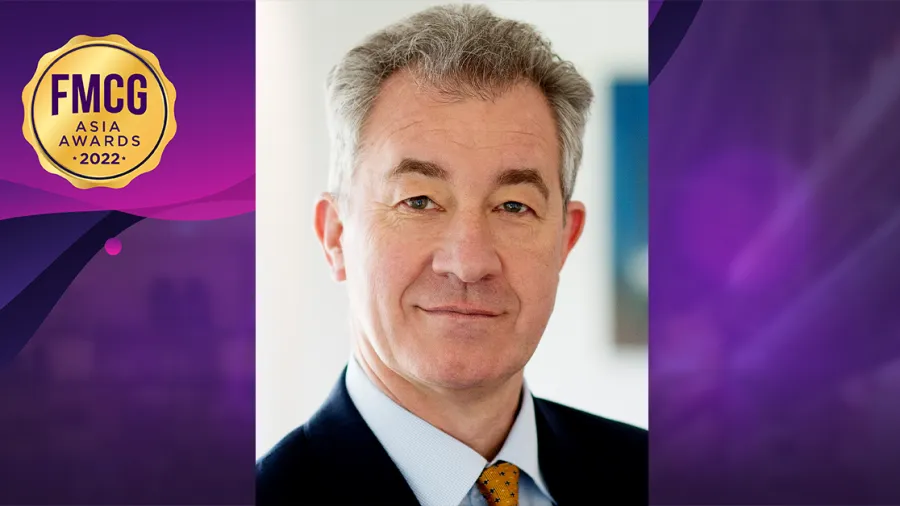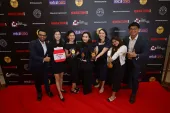
The current consumer landscape is now focusing on ESG issues, according to PwC Corporate Finance head
Neil Sutton also explained that businesses have to adapt to their expectations and that companies are now focusing on their digital transformation.
As the head of the Corporate Finance business for the Asia Pacific at PwC, Neil Sutton helps companies, entrepreneurs, and private equity firms buy and sell businesses across the region. Just in the past year, he led their team to complete over 200 deals. He also leads Deals in PwC’s Consumer Markets sector, which includes corporate finance, due diligence, deal strategy, valuations, and business recovery.
With over 30 years of experience in the consumer products sector, he was able to work on deals in the food manufacturing sector, retail, home, personal care, and luxury. As one of the judges in the FMCG Asia Awards, Retail Asia spoke with Neil as he discussed the evolving consumer landscape, digital transformation journeys of companies, as well as the challenges that FMCG companies are going to face post-pandemic.
Neil notes that the current consumer landscape is now focusing on Environmental, Social, and Governance (ESG) issues, with consumers wanting to spend on products that are both “better for me” and “better for society.” Because of this, businesses have to adapt to their expectations. However, this can lead to a potential increase in spending such as on labour, raw materials, logistics, and transportation.
There also remains a major challenge to ensure supplies of stock given the challenges experienced in the supply chain and the need for stronger demand planning.
To address these, companies are now focusing on their digital transformation, leveraging online channels to market their brands, influence consumers, and build affinity.
“Clients are trying to understand to what degree changes in technology will affect their relationship with customers and clients,” said Neil. He further adds that many have also fully leveraged a multi-channel concept to be cross-leveraging both on and off-line channels for awareness building to transacting and working out ways to ensure price consistency, reduce cannibalisation and leverage e-commerce to be an accretive channel.
In a large part of Asia (e.g. China, Japan, Korea, Australia), this is already quite advanced and depending on which categories you are looking at, e-com could account for anywhere from ~20% of sales (e.g. Food, Beverage) to 40-60% of sales (babycare, apparel, beauty/personal care products). Other markets like Southeast Asia and India are also catching up rapidly.
Many players have increased their digital spending, from a low single-digit % to now accounting for 60-80% of their total media/marketing spend and in some online-only brands even 100% spend on digital channels.
Neil said that stronger players have been able not only to market their brands digitally through traditional methods like banners, videos, and keyword searches but also to track performance/return, leveraging precision targeting to push tailor-made messages to individual consumers and also work with social media influencers, such as bloggers and live streamers, to maximise affinity.
Neil mentioned that he personally benefitted from learning in real detail about the effectiveness of a brand in one area of the sector - namely food manufacturing -, and then used that knowledge to build his understanding of building a brand in other adjacent sectors, such as Pet Food and Personal Care. He further explains that he greatly benefited from being able to join a big organization with over 250,000 people worldwide, which has allowed him to do M&A deals in over 30 countries. He also appreciates local adaptations and nuances needed to make brands work in a world where globalisation doesn’t quite have the same trajectory as it did a few years ago.
Neil says, “I have always had a deep interest in what motivates consumers to do what they do and to read as much as possible on what may influence how they change behaviour in the future .” He further stated that PwC has pioneered a programme of developing “ futurists“ across the world who share experiences on what is happening in local territories, and how this might affect businesses in the future. He cited the Middle East as an example, where PwC supports many leading-edge smart city projects.
As an FMCG judge, he expects to see a good level of innovation from the participants in creating their products. Participants are expected to differentiate themselves by demonstrating a high degree of agility and responsiveness to the changing needs of consumers.
“We will be looking for participants to go the extra mile in matching consumer trends to their newly developed products,” he says.



















 Advertise
Advertise






